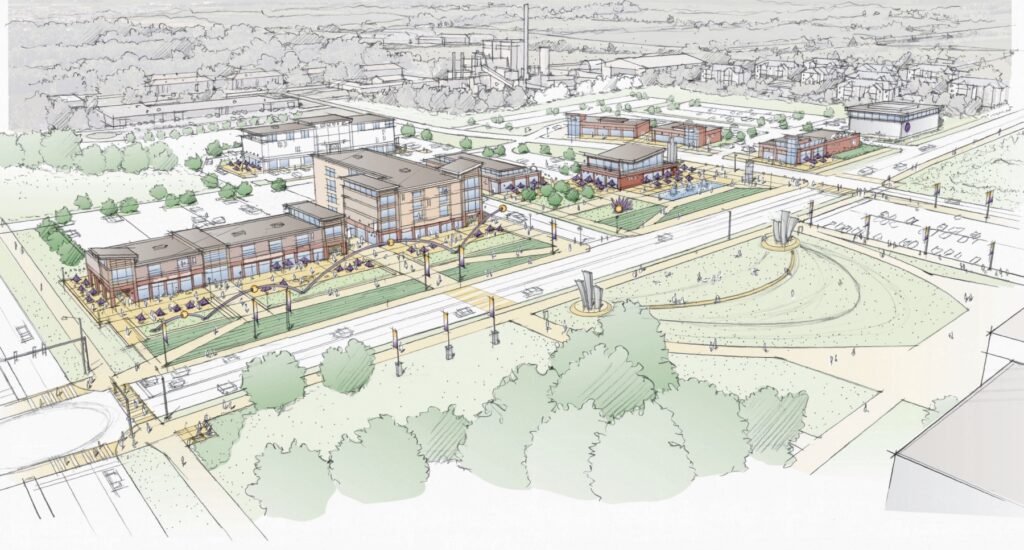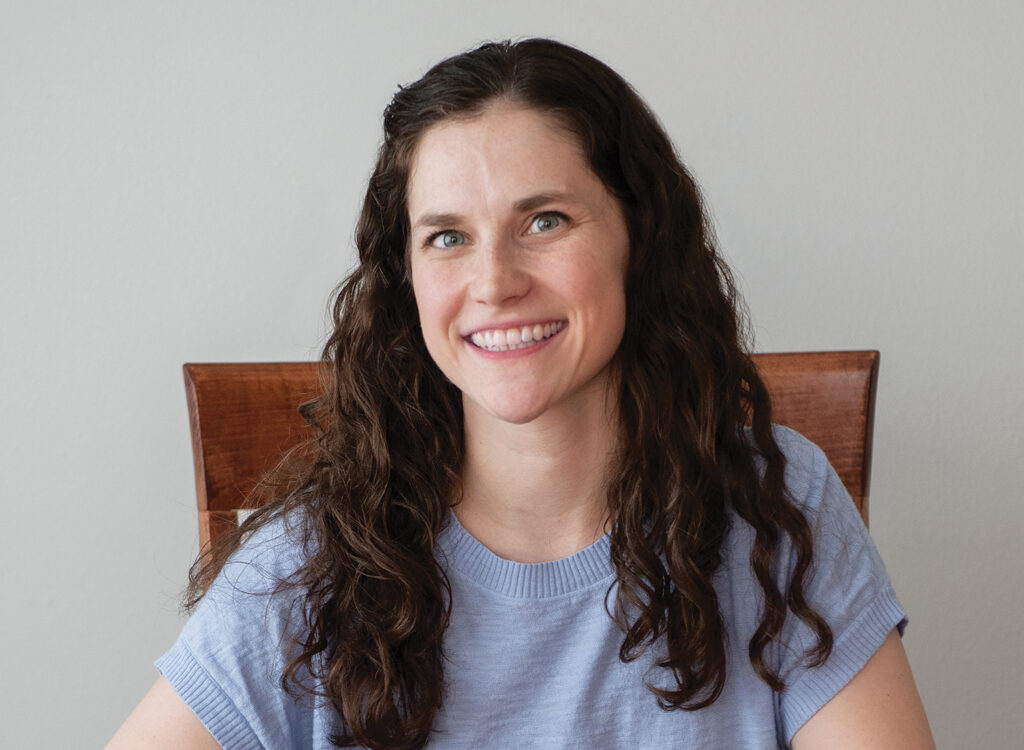Better than ever
Three universities improve MBA programs in Greater Des Moines

Greater Des Moines professionals seeking to accelerate their careers with an advanced degree have more choices and flexibility than ever in Master of Business Administration programs, thanks to an increasingly competitive field of MBA offerings available locally.
At the same time, MBA programs here are becoming more connected with the business and nonprofit communities as they strive to remain competitive and relevant in the local market.
Drake University recently announced plans to offer a revamped MBA program in the fall that will incorporate a hybrid approach of classroom instruction with online program delivery. The primary goal for the change is to increase program flexibility for working students while maintaining personal connections between the students and their professors in the classroom.
In similar fashion, both the University of Iowa and Iowa State University are leveraging technology and rolling out new offerings in the Greater Des Moines market designed to appeal to the changing needs of MBA students.
Senior Staff Writer Joe Gardyasz talked with officials from each of the three programs about the latest trends that the schools are seeing and how they’re responding to the market.
Drake University
“We were watching trends nationally as well as trends here in our local market,” said Terri Vaughan, dean of the College of Business and Public Administration at Drake. “MBA programs around the country have seen some drop-off in enrollment. One (theory) is that there is more interest in certification programs such as Certified Financial Analyst designations. So we were looking at what successful programs are doing.”
With its new hybrid program, half of every class offered will be presented in the classroom, and half will be available online.
“One of the things we identified is that these hybrid programs are quite successful where they’re introduced,” Vaughan said. “It’s because students like this combination of some flexibility in getting their degree, but they want that connection with faculty. That’s really something we bring to the table is that connection we have here in the Des Moines community.”
To evaluate the program, Drake conducted focus groups with both current students and alumni of the program, which confirmed that scheduling was a significant issue for a majority of students, said Danette Kenne, assistant dean for graduate and professional studies. “Their feedback was that they wanted us to keep the face-to-face connections as part of the classroom experience,” she said.
Another aspect of the redesigned program is an increased emphasis on partnering with businesses and community organizations by changing what had been an optional capstone class in project management into a required class.
“Students will be working with community organizations and nonprofits on problems that they have and applying the skills they have learned to try to solve some of the problems here in the Des Moines community,” Vaughan said. “We’re in the process of being out in the community and finding those projects, where our students will go out and tackle them.”
The revamped MBA will also incorporate a new course, Leading with Data, that will provide an introduction to what managers need to know about applying data analytics.
Since the announcement of the revamped program, “we’ve gotten a lot of positive feedback; prospective students are very interested in it,” said Dianna Gray, the college’s outreach director. She said inquiries about the program have doubled in the past few weeks. “I’ve heard some comments that finally a college understands what it means to be a working adult.”
Employers are excited about the program, Gray said. “They have employees they want to go through the program, but maybe there’s someone that travels a lot. This gives them that flexibility.”
From a competitive standpoint, “It’s clear that the market in Des Moines is changing,” Vaughan said. “The regents (programs) are really here in a big way, much more than they were five years ago. That did cause us to rethink what we bring — the special sauce that we bring to this MBA in Des Moines.
“A big part of it is that we are here in Des Moines, that we’re here 24/7; our faculty live here. We know the business, government and nonprofit leadership in Des Moines. And that it was important that we designed something that built on that.”
Iowa State University
Since its inception in 1999 in Des Moines, Iowa State University’s MBA program has followed a cohort model in which a group of entering students takes the first 10 required courses together, said Ron Ackerman, director of graduate admissions for the College
of Business.
“We try to make these teams as diverse as possible in background and gender, because we want these teams to develop and grow where students are providing their individual skills and abilities,” he said. “We’ve found that in our opinion, the way a student can get the full experience in a part-time program is through this model.”
Beginning this fall, ISU will offer a four-course graduate certificate in business analytics in Des Moines. “There will be ways for our professional MBA students to incorporate this into their studies,” Ackerman said. “There’s a lot of demand for this, so we’re going to provide this opportunity to also be able to focus in the area of business analytics.”
Another new development in the Iowa State Professional MBA is a recently implemented fast-track option that makes it possible for employed professionals to finish the program in two calendar years. “We developed the fast-track option because many of our students expressed interest in finishing their MBA as quickly as possible so that they can move on to the next step in their career,” he said.
Having three universities offering distinct MBA programs in Des Moines is an advantage for students, Ackerman said. “It’s much more about cooperation than competition,” he said. “There are times when we might say, ‘This other program might be a better fit.’ ”
University of Iowa
The University of Iowa’s Executive MBA in Des Moines is a cohort-based, 21-month program that begins every other January.
“It’s targeted to more experienced professionals, said David Frasier, dean of MBA programs for the Tippie School of Management. “We’re averaging 15 years or more of work experience; most of them have management experience. Those students for the entire length of the program are actually in the same teams, and they get to know each other very well.”
By comparison, the Professional MBA program tends to attract younger students who are are about 28 years old on average, and students can begin the program at any semester. “Some have pushed and completed within two years, some have taken as long as 10 years,” he said.
Frasier said the Professional MBA program, which currently offers a small number of online courses, will increase its online offerings to about eight courses within the next year. It takes 15 courses to complete the MBA.
“For all of our sites we have just significantly enhanced our technology,” he said. “Every class will be recorded, and students can access those recordings. And on the rare occasions they have to miss a class, they can actually watch it.”
Additionally, all four sites that offer MBA programs — Des Moines, Iowa City, the Quad Cities and Cedar Rapids — are now linked electronically for teleclasses. “By combining sites, we’re able to offer electives (at each site), and faculty members will rotate through the sites so they get personal face time with the students.”
In program offerings, UI this fall will introduce certificates in both finance and leadership as an option to completing a full MBA, or that can be earned within the MBA program.
“We are also working to develop this fall a dual MBA/Master’s in Analytics degree, to reduce the course load by five courses to get both of those degrees, which is equivalent to a full-time semester,” Frasier said. The college of business is also working to develop a dual Master of Social Work/MBA program as well.
Increasing flexibility for students with a broad range of program offerings is the unifying factor behind each of the changes, Frasier said.
“One thing I emphasize with my staff is that we’re not promoting a particular program,” he said. “We’re helping them to determine their needs to see which program would be the best fit. So having a good menu of programs really serves the population well.”










